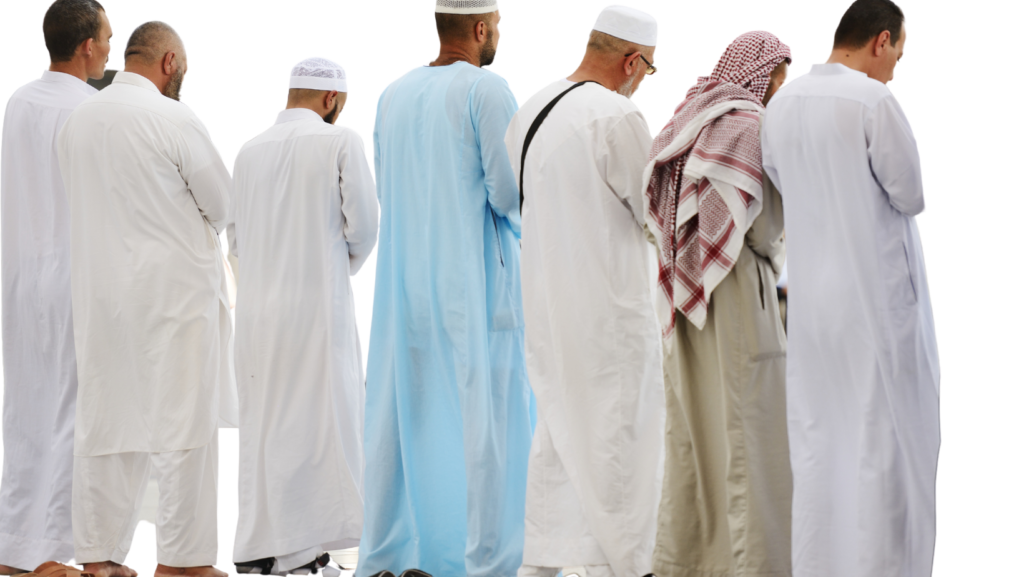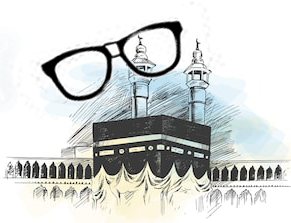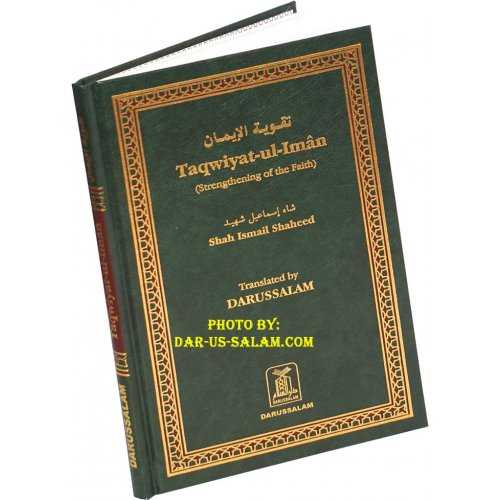Seeking Forgiveness
Allah – the Most High – said:
وَٱسْتَغْفِرِ ٱللَّهَ ۖ إِنَّ ٱللَّهَ كَانَ غَفُورًۭا رَّحِيمًۭا ١٠٦
“Seek Allah’s forgiveness for your sins, Indeed Allah is Most-Forgiving, Most-Merciful.” [Soorah an-Nisaa 4:106].
وَمَن يَعْمَلْ سُوٓءًا أَوْ يَظْلِمْ نَفْسَهُۥ ثُمَّ يَسْتَغْفِرِ ٱللَّهَ يَجِدِ ٱللَّهَ غَفُورًۭا رَّحِيمًۭا ١١٠
“Whosoever does an evil action, or oppresses his ownself through sinning, then seeks Allah’s forgiveness, will indeed find that Allah is Most Forgiving, Most-Merciful.” [Soorah an-Nisaa 4:110].
The Most Comprehensive and Authentic Explaination of the Quran!  Purchase the complete Tafsir Ibn Kathir (10 Vol Abridged) By Dar-us-Salam Publications. |
Imaam as-Sa’dee (d.1376H)- rahimahullaah – said:
“Whosoever commits an act of disobedience and plunges himself into sin, but then sincerely does istighfaar (seeks Allah’s forgiveness) for it – which involves:- [i] affirming that it is a sin, [ii] having regret for doing it, [iii] abstaining from it, and [iv] having a firm resolve not to do it again – then such is the person who has the promise of Allah’s forgiveness and mercy – and indeed Allah never breaks His Promise. So Allah will forgive the sinner, purify him of his sin, and accept from him those righteous action that he had previously done [before committing the sin] …And know that [the term] ‘evil actions’ include, in general, all acts of disobedience, whether minor or major. They are called ‘evil actions’ because of the terrible punishments that they necessitate, and because of their evil effects upon the soul. Likewise [the term] ‘oppressing oneself through wrong-doing’ includes the oppression of committing Shirk (directing worship, or any form of worship, to other than Allah), as well as the [other forms of injustices] which are lesser than it. These two terms have also been explained in a way whereby one is inclusive of the other.
Evil actions have also been explained here to mean evil actions against people with regards to their blood, property or honor. Oppressing oneself through wrong-doing has [also] been explained here to mean those sins and acts of disobedience that a person commits against Allah. It is called oppressing oneself because the person’s soul or life is not actually his property so that he may do anything that he likes with it. Rather, this life, or soul, belongs to Allah – the Most High – Who has given it to the person as a trust, and commanded him to be just and to cling to the Straight Path, both in words and deeds, and has taught this soul what has been commanded for it and the actions that it is required to perform. So a person who does not cling to this [Straight] Path is actually oppressing his ownself, acting treacherously, and swerving from the path of justice and fairness; the opposite of which is injustice and oppression.” 1

The Prophet sallAllahu ‘alayhi wa sallam said:
“Allah – the Most High – said: O son of Adam, so long as you call upon Me and hove hope in Me, I shall forgive you for what you have done, and I shall not mind. O son of Adam, were your sins to reach the clouds of the sky and were you then to ask forgiveness of Me, I would forgive you. O son of Adam, were you to come to me with sins nearly as great as the earth and were you then to face Me, ascribing no partner to Me in the worship of Me, I would bring you forgiveness as great as it.” 2

Allah – the Exalted – also said about istighfaar:
وَمَا كَانَ ٱللَّهُ لِيُعَذِّبَهُمْ وَأَنتَ فِيهِمْ ۚ وَمَا كَانَ ٱللَّهُ مُعَذِّبَهُمْ وَهُمْ يَسْتَغْفِرُونَ ٣٣
“Allah will not punish them whilst you (the Prophet ‘alayhis-salaam) are amongst them, nor will He punish them whilst they seek Allah’s forgiveness.” [Soorah al-Anfaal 8:33].
Allah informs us that there are two factors which are the cause of safety from the terrible punishment of Allah and would continue to be so as long as they are present in the Ummah: [i] the Prophet (sallAllahu ‘alayhi wa sallam) being amongst them, and [ii] their seeking Allah’s forgiveness.
Ibn ‘Abbas said: “There are two [causes] why the people remained safe, [i] the Prophet sallAllahu ‘alayhi wa sallam living amongst them, and [ii] their seeking Allah’s forgiveness. The Prophet sallAllahu ‘alayhi wa sallam has now departed, so all that remains is seeking Allah’s forgiveness.”3
Thus, the more negligent we become in seeking Allah’s forgiveness, the more we open up the doors of Allah’s punishment; both to ourselves as individuals and to the society as a whole. So – O Muslims – let us be mindful!
- Tayseerul-Kareemur-Rahmaan(p.164).
- Saheeh: Related by at-Tirmidhee (no.3540), from Anas radiAllahu ‘anhu. It was authenticated by Shaykh al-Albaanee in as-Saheehah (nos.127-128).
- Related by Ibn Katheer in Tafseer Qur’aanul’Adheem, (2/317).

Don’t forget to comment & share. Also please click our ads, they pay the bills. jazakallahu khayr.

